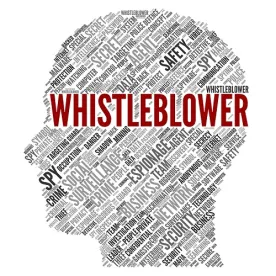The U.S. Department of Justice (DOJ) has entered into a settlement with Orbit Medical Inc. and Rehab Medical Inc. to resolve a lawsuit that began more than five years ago with the filing of a whistleblower lawsuit by two former employees of Orbit. The whistleblowers alleged that Orbit sales representatives, under the direction of one of Orbit’s top executives, Jake Kilgore, forged medical records so that Orbit could obtain payment from Medicare for electric wheelchairs. The lawsuit was brought under the qui tam provisions of the False Claims Act. Under that law, a private citizen with knowledge of fraud being committed on a government agency or government program may blow the whistle by bringing a lawsuit on behalf of the government. Successful qui tam whistleblowers can receive substantial awards. In this case, the government awarded the two whistleblowers, Dustin Clyde and Tyler Jackson, 20% of the settlement amount, which is $1.5 million.
The Whistleblowers’ Allegations
Orbit was a seller of durable medical equipment (DME) including electric motorized wheelchairs, sometimes called power wheelchairs. The complaint filed by the whistleblowers alleged that Orbit ran a “boiler room” style sales operation intended to lure Medicare beneficiaries into purchasing electric wheelchairs that Orbit would then bill to Medicare, which is one of the major government-funded healthcare programs.
Under Medicare regulations, a DME supplier must comply with certain documentation requirements to receive payment for electric wheelchairs or other power mobility devices. Because electric wheelchairs are very expensive, the Medicare regulations require that a DME supplier have both a physician’s prescription and also a physician’s note explaining why less expensive options (such as manual wheelchairs or walkers) are not medically sufficient. In other words, a DME supplier may only bill Medicare for an electric wheelchair if it is medically necessary for the patient to whom the wheelchair is sold.
According to the complaint, Orbit sought to unlawfully increase its profits by selling electric wheelchairs, and then billing Medicare for those wheelchairs, even when medical necessity was not indicated by the medical records. To cover up this unlawful activity, Orbit executive Jake Kilgore allegedly instructed Orbit’s sales representatives to alter or forge medical records to justify billing Medicare for the electric wheelchairs, a process known within Orbit as “chiseling” the records. The complaint alleged that, in some cases, the “chiseling” included whiting-out existing portions of medical records, and replacing those whited-out portions with new language written by the sale representatives, and also included forging doctors’ signatures. The whistleblowers filed a 28-page complaint explaining Orbit’s scheme in great detail.
The False Claims Act
The False Claims Act, sometimes referred to as “Lincoln’s Law,” was originally enacted during the Civil War in response to “profiteering” by companies that sold defective or useless goods to the Union Army. The Act has been amended several times since then. The modern version of the False Claims Act makes it unlawful for a company to submit false claims for payment to the government, or to create false documents or other records for the purpose of obtaining such payment. The False Claims Act also has a so-called “qui tam” provision that permits private whistleblowers to bring a lawsuit in the name of the government against companies or individuals who violate the Act. Under that qui tam provision, a whistleblower is typically entitled to an award of between 15% and 30% of whatever amount is recovered by or for the government as a result of the lawsuit.
Qui tam complaints are filed “under seal” and are then investigated by the Department of Justice, which can then intervene in the lawsuit on the side of the whistleblower. When a qui tam complaint alleges fraud on Medicare or other government-funded healthcare programs, the U.S. Department of Health and Human Services Office of Inspector General (HHS-OIG) is often also involved in the investigation.
Here, the whistleblowers filed their qui tam complaint in April, 2010, in the United States District Court for the District of Utah. The case was investigated by the U.S. Attorney’s Office of the District of Utah, HHS-OIG, and the Federal Bureau of Investigation (FBI). As a result of that investigation, Mr. Kilgore was criminally indicted; the criminal charges currently remain pending. In April, 2014, the government intervened in the qui tam lawsuit, and entered into settlement discussion with Orbit and Rehab. Those discussions culminated with the $7.5 million settlement, which the Department of Justice publicly announced yesterday.
The lawsuit is titled United States ex rel. Clyde and Jackson v. Orbit Medical and Jake Kilgore, No. 2:10-CV-00297, and is pending in the United States District Court for the District of Utah.




 />i
/>i


